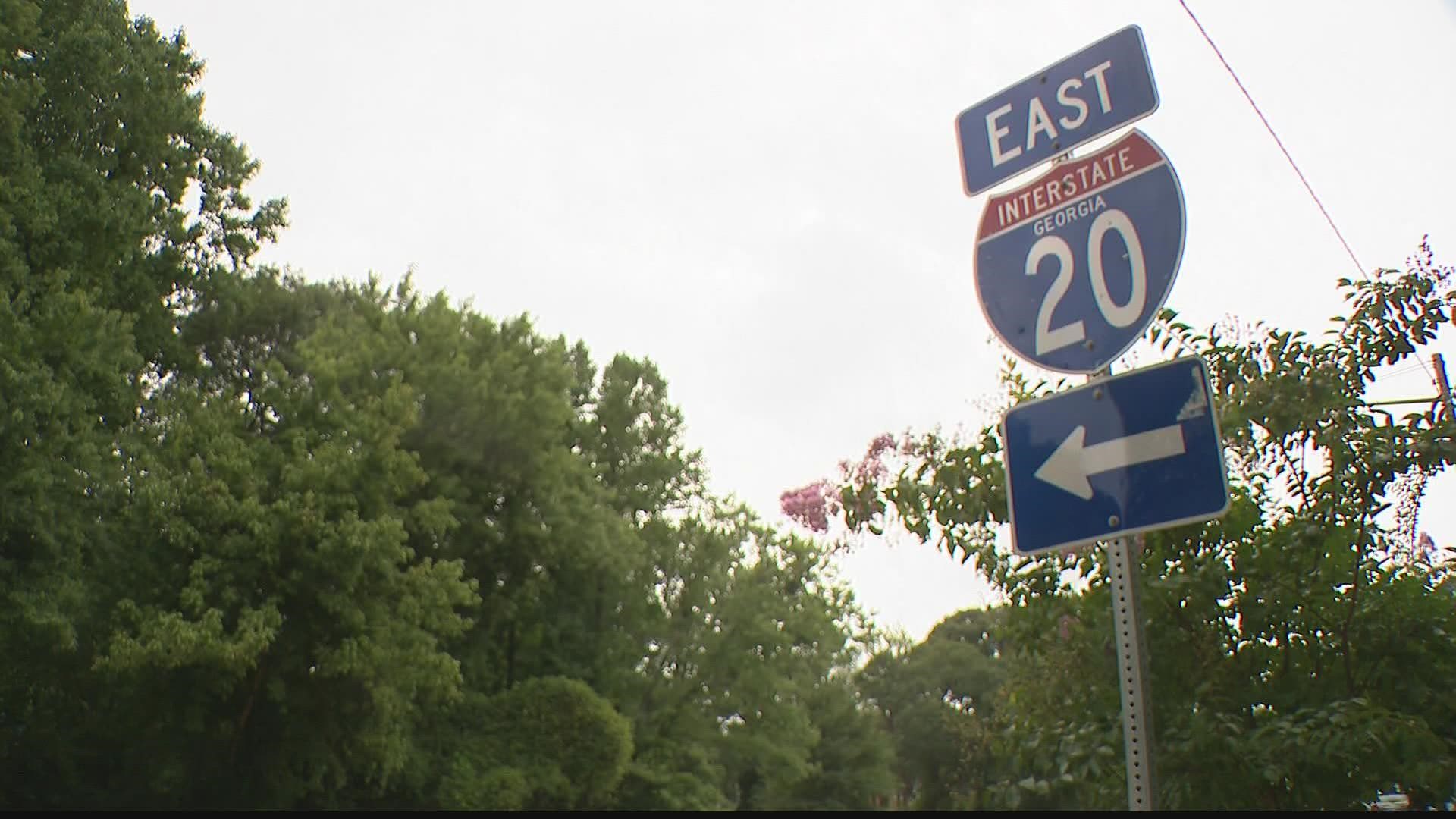ATLANTA — An infrastructure bill passed by Congress is expected to try to address some decades-old issues created by highway construction in Atlanta and elsewhere during the Jim Crow era.
When the feds built the interstate highway system, some of those highways cut right through predominantly Black communities in Atlanta, as did some of the access points.
"Love the neighborhood," said Joshua McNair, who lives on Sales Avenue, a community of single-family homes in Atlanta’s West End neighborhood. "What's different about this street, is that it goes directly onto I-20," he said, pointing to the eastbound on-ramp at the end of Sales Avenue. Scores of highway interchanges link interstates and surrounding communities, but few are as intrusive as the one on this street.
Motorists on Langhorn Street NW who want to get on I-20 turn onto what appears to be an on-ramp. But they actually go for a couple of blocks down Sales Avenue – right in front of McNair’s house and 18 others – before they get to the highway.
"Here’s a prime example of one now, that’s kind of gunning it down here. Speed limit is supposed to be 20 miles an hour but of course, they drive..." and his voice trailed off as a Corvette gunned its engine in front of his house and sped onto the highway.
"That’s exactly what we hear and see all day long," he said.
Sales Avenue is in a historically Black neighborhood. The interstate separated it from what, in the 1950s and early 60s was a mostly white neighborhood. And if residents of Sales Avenue objected to the use of their street as an I-20 on-ramp – they couldn’t stop it.
Highway engineers "sought what was I guess the weakest link in the chain and that was where Black folks lived and had very little political and economic power to stop it," said Mtaminika Youngblood, president and CEO of Sweet Auburn Works.
Sweet Auburn Works serves the historic district where the Martin Luther King Jr. National Historic Site is found, as well as Georgia State University's campus. Sweet Auburn is a historically Black neighborhood that showcases iconic moments in Georgia's African American history.
"There's another prime example," McNair said as a tractor-trailer rumbled past his house. "How often do you see a big rig truck like that driving down a residential street? But because this is actually an access to the highway, it happens all day, every day."
Interstate highways cut two swaths through downtown Atlanta that did irreparable damage to some historically Black communities.
The Sweet Auburn neighborhood never recovered from the construction of I-75-85, which created what’s now a 10-lane bridge over the middle of the community – casting a permanent shadow over what used to be the community’s midsection.
Youngblood said it was no coincidence that a federal highway project in the Jim Crow era did irreparable damage to one of America’s foremost Black neighborhoods.
"Wherever harm had to be done – if it had to be done – it would be done to Black people," she said.
A new federal law funds the Reconnecting Communities Act – which would look for ways to restore the separated sections of Auburn Avenue – a community that has stayed in decline despite surges in economic development in surrounding neighborhoods.
"The Sweet Auburn neighborhood, the Summerhill neighborhood, so many neighborhoods right here in Atlanta were divided by federal highways," said U.S. Rep. Nikema Williams, a Democrat who represents Atlanta in Congress. "And right now we have an opportunity to get this right."
How they can get it right is still a work in progress – but Williams said this will be the first time the federal government has even tried in the half-century since the highway opened.

